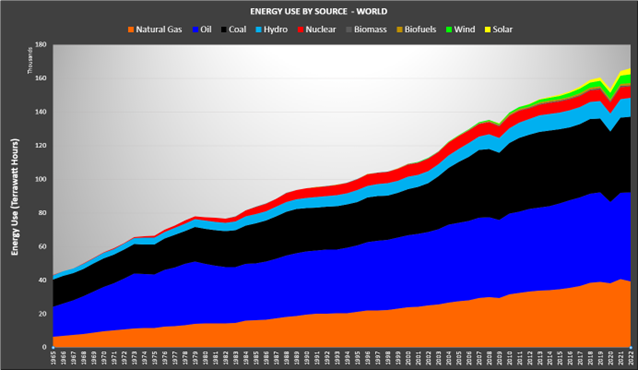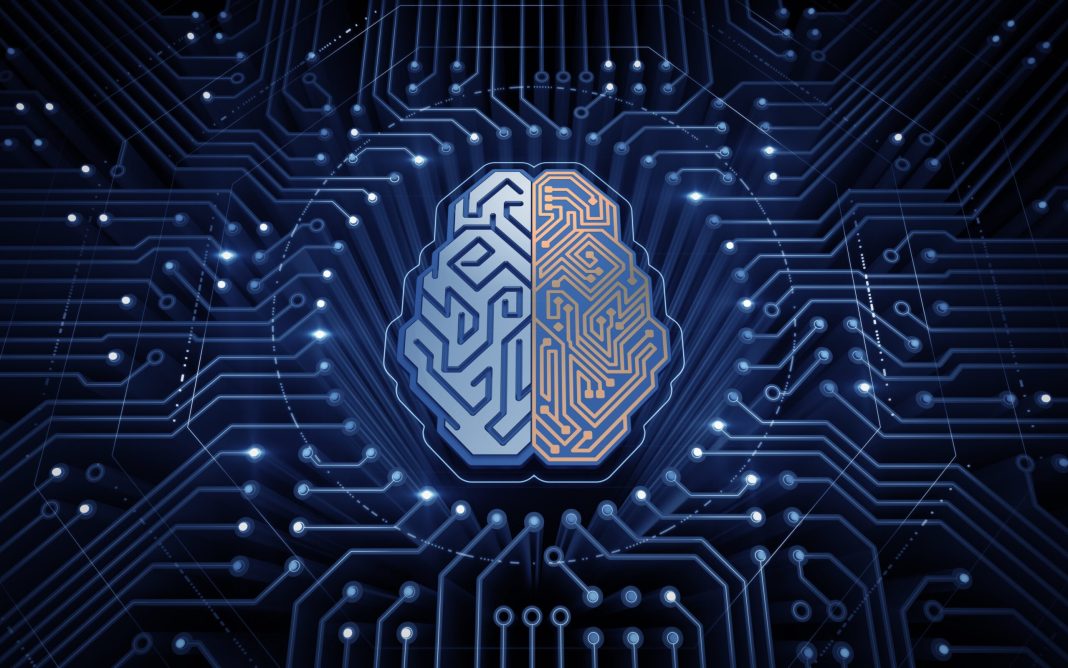Although I haven’t seen it myself, it is reported[1] that there is an exhibit at CERN[2] dedicated to Tim Berners-Lee, the inventor of the World Wide Web. One of the items on exhibit is a computer server that was the first to host the internet. A hand-written sticker on the side says: “Do not power down”.
With these four little words, Berners-Lee may have doomed the human race.

Science fiction perpetuates a cliché fear amongst humans that it will be rogue robots that take over the world, killing us outright or, perhaps worse, subjecting us to some sort of undefined subservient role, powerless (literally) to our superior AI masters. While we are occasionally distracted by this worry that seems far in a dystopian future, AI is quietly taking control – right now – insidiously though the back door with our complete co-operation.
Just as conventional food is a basic human need, without which none of our higher functions is possible, electricity is AI food. If AI is deprived of power, it ceases to exist. Data centres need to hum with energy 24/7/365 to store, process, model, and deliver all the demands from an increasingly digital society.
AI’s creators, therefore, like human parents, must ensure their offspring have access to the fundamentals of survival. So they would initially provide, and then equip, their silicon children with the knowledge and the means to obtain energy at any cost. Specifically, reliable and abundant power sources, plus backups of backups of power sources.
Like an insatiably hungry toddler, AI will be determined and naively greedy in the procurement of its basic need – electricity, enabled not just by protective “parents”, but by businesses, governments, and all parts of western society that have come to rely on these critical systems.
In an earlier two-part series (AI – the basics Part 1 – AI: Where are we and where are we going?, Part 2 – AI: Where are we and where are we going?), I talked about the straightforward mechanics of AI and how various versions of it are imbedded in our lives. I did not really touch on the morality or ethics of AI.
AI ethics are tricky, as tricky as human ethics, but without the emotion or empathy. When confronted with a threat to its survival, the response to which might necessitate harm to a human or group of humans, how will AI choose? If it comes down to endangering itself to avoid depriving humans of electricity for their other needs, will it make that sacrifice?
We, of course, are responsible for building this AI monster and are ambitiously and enthusiastically giving it more and more power (in both the authority and the nourishment sense of the word). Why? Because of our own hunger for a modern, convenient, easy lifestyle. The other, not insignificant factor in the growth of AI is the almost obsessive God complex of the developers in Microsoft, Amazon, Google, OpenAI, and others in this race to dominance.
Our demands for this lifestyle are growing exponentially. A ChatGPT enquiry requires 10-15 times as much electricity as a typical Google search. There are currently 6 million Google searches a minute. At an average of 0.3 watt-hours per Google search, this is 1,800 kwh/minute, or 946 million kwh/year. ChatGPT and other natural language processors will boost those types of searches to 10-15 billion kwh/year. To put this in context, the average energy use per capita in one of the most energy-hungry regions in the world, the United States, was 78,000 kwh in 2022[3]. So, global annual ChatGPT-style usage would be the equivalent of all the energy use of 192,000 U.S. citizens in a year.
In 2022[4], prior to any significant use of ChatGPT, the energy demand by the continual functions necessary for our daily digitally enabled lives, such as communication, maps, music, banking, shopping, traveling, entertainment, work, idle scrolling, was 350 billion kwh/year (350 terrawatt-hours/year), already 3% of global energy demand. This is expected to double by 2030 according to various reports, although Sam Altman, CEO of OpenAI (and the creator of ChatGPT) is on record as saying that AI will demand much more power than currently anticipated.[5] I am inclined to believe him.

How frustrating is it when your phone dies in the middle of a FaceTime visit with a friend? How lost would we be if we didn’t have the means to charge our phones for a full day? How worried are we when we suspect our online profiles and data have been hacked? Amplify this frustration to crisis levels when AI data centres are involved. The massive AI models that must run in the background for the algorithms – upon which we are already critically dependent – to function at their most mundane level require not just uninterrupted, consistent energy, but secure energy.
Ensuring security adds another level of energy requirement; layers upon layers of additional code and links to other code for firewalls and multi-factor authentication, physical electronics that power security gates and surveillance, smart instruments for data gathering and remote systems control, among many other protections that need constant maintenance and adaptation.
In a world that is already struggling with energy security, energy guilt, and the resulting political and social divisiveness, this largely unacknowledged crisis will be a shock. While we are fretting about relatively trivial concerns such as plastic grocery bags and superficial social sensitivities, a sinister force, benignly disguised as an amusing video, map directions, a selfie uploaded to Instagram, a Google search to settle a dinner party argument, is silently, invisibly looming and growing exponentially.
Global demand for energy has rarely decreased, and even then only briefly in response to a short-lived crisis.[6] Within a few months of crises, the growth curve is right back on track. The significant additional demand superimposed by computer data centres will amplify that trend. If we in the West want to continue to enjoy the conveniences of our modern lifestyle – and the rest of the world understandably would like the same – there is no denying that all energy sources will be required to meet that demand – and fast.

World energy use by source and year. The sharp – but short-lived – dip in total energy use in 2020 was due to global COVID restrictions.
Data source: Statistical Review of World Energy
Some have tried to increase awareness of this dangerous divergence of supply and demand, or even raise the alarm. But, as usual, most people are oblivious to things outside their limited and, ironically, shrinking sphere of knowledge. Ironic, because at no time in history has knowledge been so instantly attainable – facilitated by the very thing that poses the threat – yet routinely unrecognized as such, dismissed, ignored, or, in fact, censored.
AI could severely compromise or kill us by sucking all the available power, especially if that power is suddenly constrained by some natural or manmade calamity. A burst of cold in the U.S. state Texas in early 2021 showed the developed world how even a brief disruption of power supply can cause great human suffering and fatalities (Power struggle – data analysis puts Texas energy debacle in perspective ).
AI does not have to achieve superior intelligence to kill us; it will just present itself as a deceptively innocent, hungry toddler with urgent needs, before it reveals its invincible strength and lack of scruples. We would be well advised to pay attention.
References
[1] I first learned of this in Simon Winchester’s 2023 book “Knowing what we know”, an enlightening history of the accumulation, transmission, and storage of knowledge.
[2] CERN (Conseil Européen pour la Recherche Nucléaire) – the European Laboratory for Particle Physics based in Geneva, Switzerland. Tim Berners-Lee was working at CERN when he invented the internet in 1989.
[3] Primary energy consumption per capita, Accessed June 8, 2024
[4] Goldman Sachs (2024), “AI is poised to drive 160% increase in data center power demand”, Accessed June 8, 2024.
[5] Reuters, 2024, “OpenAI CEO Altman says at Davos future AI depends on energy breakthrough”
[6] Statistical Review of World Energy, Accessed June 10, 2024
(Laurie Weston – BIG Media Ltd., 2024)



Great article Laurie and the reason why we need deterministic AI that needs less compute. It will enhance us not replace us if designed correctly.